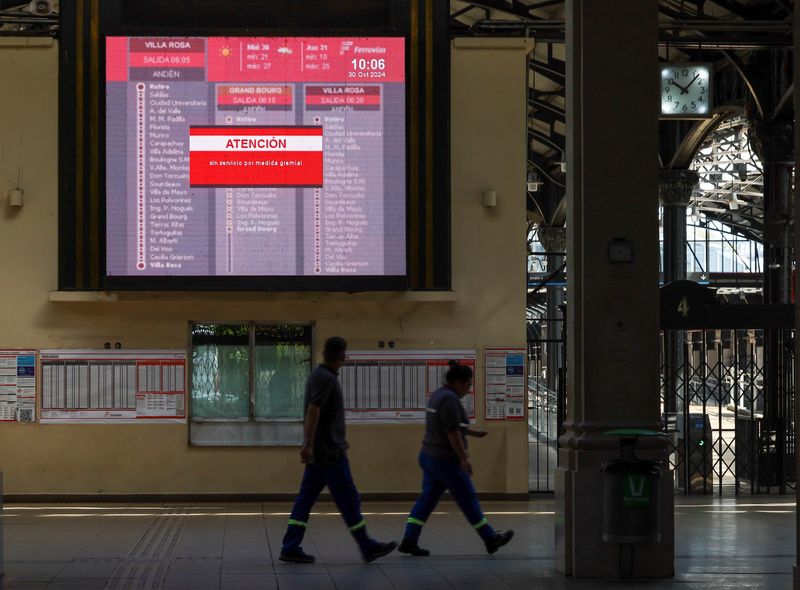BUENOS AIRES (Reuters) - A 24-hour strike launched on Wednesday by transportation unions in Argentina against President Javier Milei's austerity measures blocked grain shipments at a major hub and affected thousands due to the lack of operating trains and airplanes.
Workers were protesting a series of layoffs in public agencies by right-wing libertarian Milei while demanding higher wages, as the government pushes through with austerity measures to balance its accounts amid a major economic crisis.
The strike was blocking ships from docking or departing from the grains ports in Rosario, a major ports chamber announced, hurting trade in Argentina, the world's largest soy meal exporter and a major corn and wheat supplier.
"The union responsible for tying and untying boats are not allowing them to dock or depart," the head of the CAPyM chamber, Guillermo Wade, told Reuters. "The rest of the port is working normally, loading ships and unloading trucks."
The strike also affected activities at the ports of Buenos Aires, La Plata, Bahia Blanca and Rosario, as well as waste collection and air travel, delaying flights operated by state-run flag carrier Aerolineas Argentinas and other airlines.
Some unions protested against Milei's plans to privatize Aerolineas Argentinas, which has reduced its workforce in recent months. Education unions demanding higher university budgets also joined the strike.
Buses were the only mode of transport operating normally as unions representing workers in the sector plan to carry out a separate strike on Thursday, as they negotiate a salary hike.

"I have to work and this is ruining me. I think the strike is wrong," a worker interviewed by TV channel La Nacion+ said while standing in a long line at a bus stop. "It took me an hour and a half to get here," he added.
Omar Maturano, the head of a train conductors' union, told TV channel TN that the strike was the only way the workers found to "fight back against (the government's) economic and social policy."